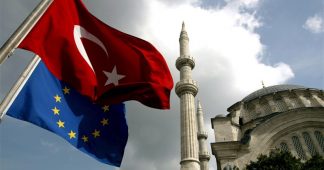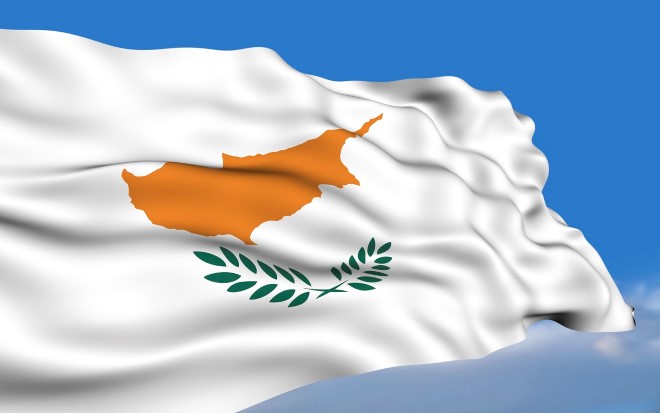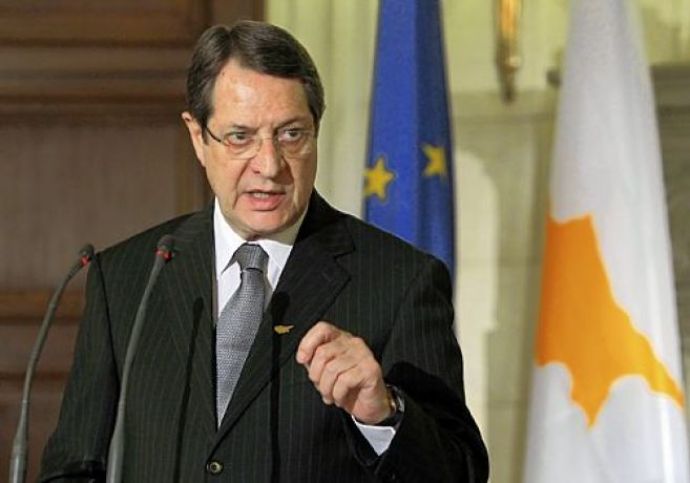by Dimitris Konstantakopoulos
The British Prime Minister Theresa May is rushing to Ankara to discuss Cyprus, the Middle East and Turkey’s accession to the EU. She will first be going to Washington to test where the new US administration stands on this issue and to lobby there for the type of solution she wants to impose for the conflict in Cyprus. Britain has always been the architect of Western policy on Cyprus and Mrs. May will try not only to influence the Administration, but, if possible, secure some promises from Americans to Erdogan, in order to persuade him to give the go ahead to the Geneva plan for Cyprus.
The International Conference on Cyprus, hastily organized on the initiative of President Anastasiades, under pressure from the previous US Assistant Secretary Victoria Nuland, has, as a first goal, to abolish the agreements of Zurich and London of 1960, which oblige Britain, Greece and Turkey to guarantee the sovereignty of the Republic of Cyprus and then, as a second, to abolish the Republic of Cyprus altogether and create in its place a strange and unstable international protectorate, under the rule of an “International Police” force. (1)
Under normal conditions, May would have no chance of success. Erdogan would be ready to give everything they asked of him, on two conditions. Firstly that they would stop all assistance to Kurds and give him guarantees that they would not try to overthrow him. But the US under any administration, Trump’s included, is not ready to “sell off” Kurds, because it considers them a major strategic asset in the whole area. Besides that, Exxon Mobil (a strong supporter of an Annan-type solution for Cyprus) now commands considerable influence in official Washington and has already signed the most lucrative contracts for oil exploration in Iraqi Kurdistan. The atmosphere in Ankara, around Erdogan, is shaped by fears of an international conspiracy not to permit the existence of any state in the Middle East with a population of greater than 10 million people, as the ex-Consul to Mosul and now CHP deputy Ardaham Miletkveli has put it.
But nobody knows if the present conditions are “normal”. Everybody who feels badly cornered wants to persuade himself that an easy way out is available and many experienced leaders before Mr. Erdogan have succumbed to this kind of temptation. And if there is anybody in the world who could try to organize such a delicate operation it is the Prime Minister of Britain Theresa May.
The British cards
The British PM is probably the only Western leader who could have any chance of being believed and trusted now by President Erdogan of Turkey, who suspects most of the Western establishment of being behind the coup attempt against him, and indeed of still harboring plans to overthrow him and dismember his country (2)
If Mrs. May has decided to go personally to Turkey to persuade Erdogan, it is because she believes the Cyprus affair is of paramount importance, for three reasons – the future of British bases on the island, the future of the Turkey-EU relationship and, also, possibly, other plans for the Middle East. (3)
There is also a fourth reason that Mrs. May is rushing to Ankara. This is that we are moving full steam ahead towards a new crisis of Greece and of the EU, so it is best to better to tidy up the loose ends before it explodes. As Germany, European Commission and the IMF are now staging yet another attack on Greeks and on Greece and its government (which has already accepted the proposed Cyprus settlement), Mrs. May is racing against the clock.
Britain has lost its past Empire but not its instincts and the diplomatic skills it commanded. Last summer the British Ambassador to Ankara was the only Western diplomatic representative to go quickly on record denouncing the coup. Of course one might wonder how it happened that the British Intelligence Service did not know anything about an impending coup in one of the most important NATO countries, or if they did know, why they did not warn the government of an allied and friendly nation. But Turkish officials were probably very happy to receive any kind of Western support at that time, so they preferred not to question the intentions of Britons bearing gifts.
We don’t know what gifts for Turkey Mrs. May might really be carrying now in her luggage, for implementation in the Middle East. She will probably tell Mr. Erdogan how irresponsible those Western leaders are who play with the Kurdish fire and will promise him to make them come to their senses. She will doubtless try to persuade him how Israel and Saudi Arabia are much better friends than such impolite and ugly people as the Russian President and the Teheran Ayatollahs. And after all, in the Middle East, alliances and friendships can change more quickly than the seasons.
One thing we know that Mrs. May can give to Erdogan is an enhanced role in the EU, with Turkey acquiring many of the powers associated with full membership of the Union.
This interests Turkey and this is why PM Yildirim went on record to explain that if the Cyprus deal is concluded, “Turkey should be treated as a member of the EU”. The vice President of his government also asked for the right of all citizens of Turkey to establish with all rights of the inhabitants if they so desired in Cyprus, which is part of the territory of the EU. Knowing that everything they ask for and the entire settlement policy in Cyprus contravenes both European and international law, they are also demanding that the agreement be part of prime European Law.
Why the Cyprus settlement will bring Turkey into the EU
If Ankara agrees to conclude the deal on Cyprus which is currently under negotiation, it will gain a huge benefit, or what seems at first glance to be such a benefit. It will immediately become a member of the EU!
As the Greek FM explained recently to the German news agency DPA (21-1-2017), the deal under consideration provides for the majority of Cypriots (82%, Greeks by nationality) to have exactly the same status as the minority (18% Turks by nationality). He himself calls this system “more equality than in most federations”. He is right when he says that. It is so much equality that it becomes a huge inequality against the majority. And of course there are not many entities that could be governed on a 50-50% basis, be they firms or states. Greeks and Turks will be required to be transformed into angels in the coming years, whatever their unangelic record of the last one thousand years. Otherwise what is going to come out of this will be chaos.
Already, under such arrangements, Turkey acquires a veto on the Cypriot vote inside the EU. In fact it acquires more than that. If it seems difficult for Germany to “assimilate” Turks, it should not be too hard to understand what the probabilities are of Turks being “assimilated” into an imaginary and very shaky Cypriot identity. Turkish Cypriots will never wish to become “independent” of Turkey and even if they did wish to, Ankara would have the wherewithal to make them forget such dreams, quickly.
This is why Ankara seeks a determining influence on Greek Cypriot decisions, not just a veto on the vote of Cyprus, but also the actual vote. Greek Cypriots are a majority in Cyprus but a tiny minority if we consider the wider region and the 60 million Turks just to the north of their coast.
According to both the President of Cyprus and the Greek FM (Kathimerini, 26-9-2016 and 25-12-2016), Turkish troops are going to leave the island, but only in the distant future, after the existing Cypriot state and its National Guard have ceased to exist, to be replaced by an “International Police” force, which, according to reliable sources, is proposed to consist of “policemen from an equal number of Christian and Muslim countries” (this, we remind the reader, they plan to implement inside the EU, not in some remote region of Asia or Africa). Whether Turkish troops will actually leave is anybody’s guess, as the Iraq and Syria experience suggests.
In reality things will be much more complicated if such a solution is proceeded with. If legally the settlement is creating a kind of post-modern protectorate, as Greece has become inside the EU albeit by other methods, in practical terms it is so unjust and inherently unstable that it will most probably explode, either by itself or with the assistance of any third party wishing to detonate the island.
It seems that for some people there are not enough problems already in the Middle East and the EU (not least because of the situation currently prevailing in the Middle East).
Why Britain wants Turkey inside the EU
The accession of Turkey to the European Union is a decades-old strategy of both the United States and Great Britain, which were able to impose it on Europeans, in spite of their opposition and reservations. We don’t know how Brexit and the election of Donald Trump will affect this, but we don’t have, for the time being, any indication that it will be affected.
The reasons Washington and London have always wanted Turkey inside the Union are the following
- first, to have one more NATO “Trojan Horse” inside the European structure, thus deterring any future idea of an independent Europe
- second, to seal the character of the European Union as a neoliberal free-trade zone and nothing more, as London has always wanted. By bringing new countries of a completely different economic and social level into the structure, without organizing any kind of systematic effort to bring them to the level of the most advanced countries, you can achieve two objectives. First, you acquire a powerful weapon against the Western European welfare state and, second, you create the conditions for havoc inside the Union, as the Greek crisis has demonstrated
- third, by bringing more and more countries, and more and more heterogeneity, both in economic and social and in cultural terms, you make the Union ungovernable. Then you may reasonably expect that such a situation will strengthen the power of big banks, lobbies and multinationals, hidden behind the Commission and the ECB, because somebody will have to take decisions.
- fourth, the admission of Turkey will destroy one of the very few common elements in European policy, i.e. the common agricultural policy, because nobody in Europe is going to pay for peasants in Turkey.
- fifth, to involve Turkey as closely as possible inside Western European mechanisms, thus undermining any future possibility of Ankara having a more independent policy
The policy of enlargement to include Turkey is an ill-conceived policy, as all recent enlargement policy of the EU has proved to be. The big 2004 enlargement has already played significant role in exacerbating the present EU crisis. It is not to the benefit of the existing members of the EU, and it is also not to the benefit of the newcomers. If you have doubts, go and ask Bulgarian and Romanian citizens what they feel they have gained from belonging to the European Union.
If one really wants to incorporate all these countries in the European Union, he should have defined a clear political and social project, found the means to realize it and asked the opinion of European citizens. To create a stable Union you need many things, including the ability to bring dramatic improvements in the economic and social level of the new members, with the help of something resembling a Marshall Plan. No such idea at present exists in Europe. Not only do they not want to help new members – the Union is literally destroying some of its oldest ones!
Enlarging or destroying the Union (and Turkey!)
In the context of “carefree globalization”, the unlimited enlargement policy of the EU was an external complement to the continuous liberation of the markets inside the Union, both contributing to transforming it not into any kind of federation, but into a neoliberal Empire, as Barroso called it once, i.e. a totalitarian structure run by High Finance.
In the context of the present economic and political crisis of globalization, continuation of the enlargement policy, with such methods, can become a tool to destroy the Union, or at least create huge problems for it. The banking crisis has already metamorphosed into disputes between states (notably Greece and Germany). Now the political crisis will be transmuted into interethnic conflict. Only devil himself would consider now adding, to a structure like the present EU, new difficult ethnic and national conflicts such as those inside and around Cyprus!
For the last two decades we have seen the results of chaos in the Middle East. For the last two years we have begun also to see, and experience, the consequences of this chaos inside Europe. Perhaps it is time to stop conducting such experiments on a planet plagued with such problems as the ones we are facing now.
Divide et Impera and Mars meeting Venus
As for the Eastern Mediterranean, one should remember that the scenario writers of all the Greek-Turkish crises and wars of the last century are to be found not so much in Athens, Ankara or Nicosia as in Washington and London.
National leaders in the three countries tend to look upon the problems as an antagonism between their states and nations. But with every round of confrontation, irrespective of who wins, the entropy of the region’s state structures increases. They are all losing some of their strength. This is the logic of the Divide and Impera principle.
We cannot know what Mr. Erdogan will opt for. If he decides to take the short-term gains the old British lion goes to offer him, he may in a later stage face very strange and unintended consequences. It is one thing to enter the EU through the door. It is something very different to climb in through the window. Most Europeans do not want Turkey inside the EU. One way of addressing this problem is by trying to change their opinion. The other method is to play tricks. When Europeans discover what all this is about, it will just trigger an exponential increase in their hatred for Turkey and contribute to the destruction of the European structure Ankara wants to be part of.
Nobody can be sure what the unpredictable president of Turkey will decide. He is undoubtedly a master of tactics, but has yet to prove that he is also an astute strategist.
If we cannot make predictions about Erdogan, we can be sure of the incomparable stability of the British strategists and their deep regret that their cousins across the Atlantic do not always see them as the Empire’s most desirable advisors. Sometimes British policy is so complicated that even the Ministers of Her Majesty themselves have difficulty following its meaning. We don’t know if this is happening with the present Foreign Secretary, probably explaining why he is not himself going to Ankara. But perhaps this was why another British Foreign Secretary had to become very explicit to his own colleagues in the Cabinet, in order to help them understand what he was doing.
This was Harold Mac Millan. Speaking to the cabinet about Cyprus (again!) he said: “Our goal in the negotiations is to oppose the Greeks to the refusal of the Turks to accept Enosis, the union with Greece, in order to condition them to accept our sovereignty”.
The end result of such an approach, which was then also adopted by Washington, was enormous animosity between Greek and Turkish Cypriots, and between Greece and Turkey, two bloody conflicts in Cyprus itself, a military dictatorship in Greece, the near destruction of the SE wing of NATO and decades of fervent anti-Americanism in Greece. Both President Clinton and Secretary Holbrook felt the need to apologize, and Henry Kissinger is still being accused for what he did in Cyprus. Was it really worth it?
If required to explain the present goals of Mrs. May, Mac Millan would probably say “Our goal in the negotiations is to lure Turks, into believing they will gain from a lifting of their guarantees and their veto on Cyprus, thus permitting the Greek government and Anastasiades to give us the sovereignty of the island, as they have already agreed to”.
But now we are not speaking of a “not fully independent” Cyprus, as Colonial Secretary Hopkins put it back in the 50s. We are speaking about the complete dissolution of a state, which also happens to be inside the EU. This way of “solving the (now frozen) Cyprus conflict” threatens to turn it into a Syria-type conflict in Eastern Mediterranean. Is this what we really need ?
- For details of this very strange “state”, 50% Greek and 50% Turkish, with an “international force” to police it, check out the interview of the Greek FM to DPA news agency (21-1-2017)
- (2) The fears of Mr. Erdogan are not necessarily paranoid delusions. Distinguished US neocons all but invited the Turkish Armed Forces to stage a coup against him. See our article on the July coup in Turkey http://www.defenddemocracy.press/turkey-military-coup-possible/. Turkish pro-Erdogan media were full of such allegations.
(3) As the art of “Historical Statistics” prove, crises around Cyprus (or attempts to “solve the Cyprus conflict”) always precede big wars in the Middle East, given the strategic position of this island, controlling all the Eastern Mediterranean. Being themselves islanders, British imperial planners have always understood only too well the strategic importance of Cyprus. This is why London took care that all EU officials in positions to deal with Cyprus affairs are British by nationality. But you may still, if you wish, believe this is simply a matter of coincidence.
In 1954, Labour was in opposition and the ex-Colonial Secretary Griffiths suddenly remembered that he was a socialist and put a question about the future of Cyprus during a Commons debate (27-7-1954) to Harry Hopkins, the Tory Colonial Secretary. He obliged Hopkins, in order to call him to order, to declare in public the permanent British and Western strategic doctrine on Cyprus: “It has always been understood and agreed that there are certain territories in the Commonwealth which, owing to the particular circumstances, can never expect to be fully independent”. This is the doctrine they are trying to apply in Geneva now, with one difference. They do not want “partial”, “not full”, independence for Cyprus, as in 1960. They now want complete abolition of the Cypriot state!
(4) When, some months ago, the leftist leader of the Turkish Cypriots went on TV to claim some independence from Turkey, President Erdogan reminded him publicly that he had better keep his mouth shut. He did not tell him outright that he should be careful if he wanted to keep his head on his shoulders. But the message was clear and no Turk wants to make jokes about the President nowadays.











